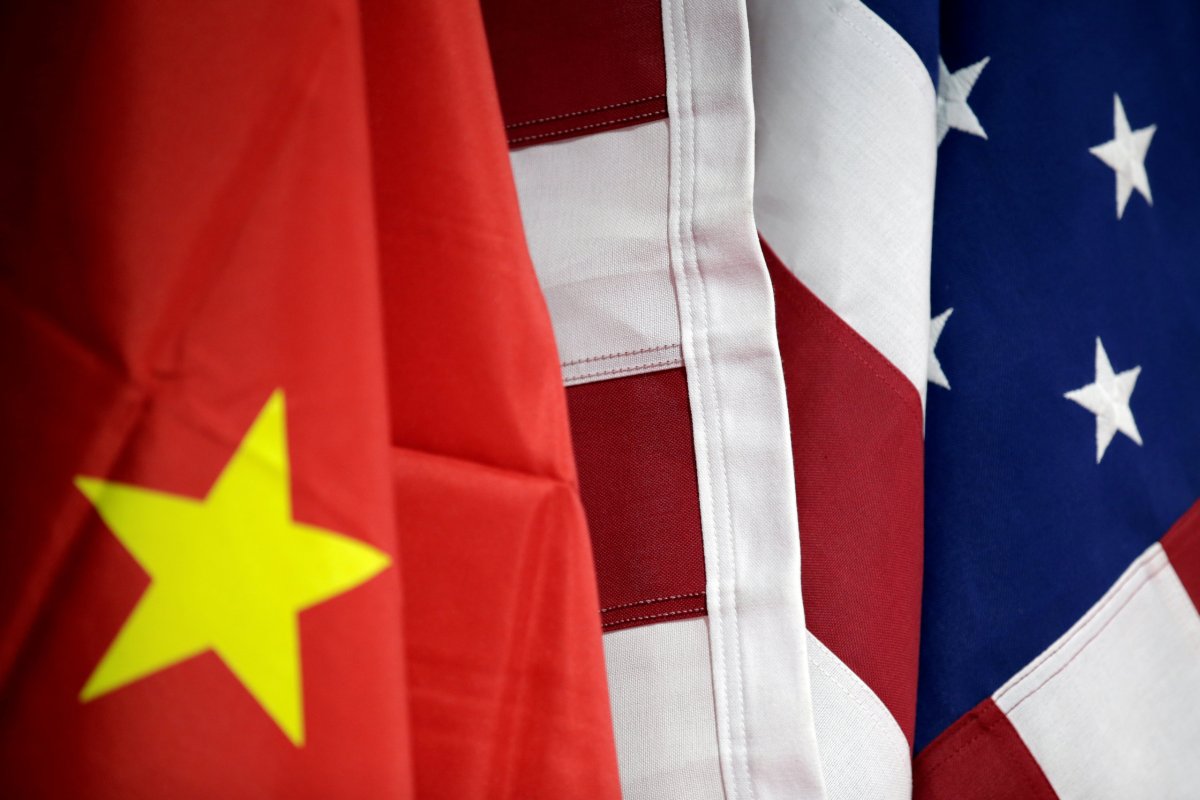By Tony Munroe and Huizhong Wu
BEIJING (Reuters) – A Chinese state TV anchor and a host from Fox Business, whose sparring over the U.S.-China trade war has been avidly followed on Chinese social media, brought their duel to the American cable network for what turned out to be a respectful encounter.
The showdown between Liu Xin of state-run English channel CGTN and Fox Business Network host Trish Regan was aired on Wednesday evening in the United States but was not shown live on TV in China, though it had been hyped by state and social media.
Many people in China followed the debate on state broadcaster CCTV’s blog and some watched via livestream, while others on social media were clamoring for the full video.
The rhetoric out of Beijing has become more strident since Washington moved this month to raise tariffs on Chinese imports and blacklist tech giant Huawei Technologies Co Ltd.
The 16-minute segment began with Liu correcting Regan to say that she was not a member of the Chinese Communist Party and was speaking for herself as a CGTN journalist. Otherwise, there was little in the way of fireworks.
Liu agreed that intellectual property theft was a problem, although not only in China, and that there was a “consensus” in China that “without the protection of IP rights, nobody, no country, no individual, can be strong and can develop itself.”
Regan asked Liu to define state capitalism, and Liu described China’s system of “socialism with Chinese characteristics, where market forces are expected to play the dominating or the deciding role in the allocation of resources.”
Liu said state-owned enterprises play “an important but increasingly smaller role, maybe, in the economy”, adding that the private sector accounted for 80% of Chinese employment.
Washington argues that Huawei, the world’s largest maker of telecoms network gear, is linked to the government and therefore poses a security risk, which Huawei disputes, arguing that it is owned by employees.
Key Chinese industries such as energy, telecoms and banking are dominated by state controlled firms, and foreign players are excluded from some sectors, or forced to form joint ventures.
INTERRUPTIONS
Liu had said on Twitter that because of broadcasting rights issues, CGTN would not be able to show the debate live, though it would “report on it closely”.
A Fox News spokesperson said a free live stream of the debate would be available on the Fox Business Network website and the entire segment would be available after the broadcast.
The internet in China is heavily censored and many major foreign media sites are blocked.
Liu was connected by video link to the Fox studio from Beijing and delays, which Regan had warned about, meant the two sometimes talked over each other.
Chinese internet users generally thought Liu performed well, but the top hashtag on the Twitter-like service Weibo, garnering more than 130 million views, was “CGTN host Liu Xin has been interrupted by Trish Regan three times.”
Some were annoyed they could not watch it live.
“Before the debate, everyone was noisily promoting it any which way. Yet, the livestream wasn’t a real livestream, it became a live blog,” said user Wangyuanwai, who had been unable to watch the debate live.
The feud between Liu and Regan had started on air and was amplified on Twitter and taken up by Chinese social media.
Liu had been critical of Regan’s China coverage, leading Regan to call on Liu to have an honest debate.
“She’s so sure of U.S. victimhood, so indignant that her eyes practically spit fire, yet in carefully analyzing her words, it’s all emotion and accusation, supported with little substance,” Liu said of Regan on CGTN.
Regan responded this week on air and on Twitter: “They’re launching a full-scale information war against the United States of America, and their latest target is me.”
CCTV and the People’s Daily newspaper had shared news of the debate on Weibo, while other Chinese media outlets had joined in, some even circulating footage of Liu in an English speech competition from 23 years ago.
Chinese state media has opened the floodgates to patriotic commentaries since the latest U.S. tariff hike and there has been a surge in internet chatter about the trade war during the past few weeks.
(Reporting by Tony Munroe, Michael Martina and Huizhong Wu; Editing by Simon Cameron-Moore and Darren Schuettler)
















